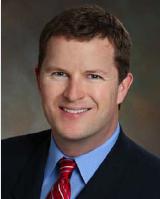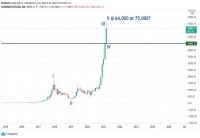|
The articles below are authored by the CTAs, who are responsible for content. Red Rock Capital
Tom Rollinger, a partner at
trend follower Red Rock
Capital, previously worked
in Edward O. Thorp's family
office. In addition to their
CTA, the firm is launching
a long/short commodity
product at the end of the
September.
Our flagship Systematic Global Macro program came into July sensing and alerting us to beware of upcoming noise and non-direction; it was right. We designed the strategy to be adaptive and it was: it reduced our exposure, made it harder to get into new positions, and reduced the potential size of them if we did. We were pleased to make +1.56% in July during such a tough month when all the main CTA indexes lost ground. As I compose this, through August 22nd, we are up another +1.39% month to date for August and Newedge CTA Index is down -1.29% and the Newedge Trend Index component (i.e. 10 largest trend followers still open for investment) is down -1.58%. Why are we outperforming? Based on our relative performance to major CTA indexes and to several of the top CTA firms that we track, it appears many of them have been trading (and, hence, risking) significantly more than us since July. This is not surprising to us; our flagship program was designed to capture the high-value payoff portion of globally trending markets by blending the benefits of both momentum and probability theory. We utilize a proprietary and quantitative "market profiling" technique to identify and categorize current market conditions into four phases. To maximize risk / reward we minimize the amount of time we are exposed to 3 of the 4 phases. Historically it appears that most of the blue-chip trend followers get into trades sooner, stay in longer, and regularly take on more risk than we do. Our strategy has not liked what it has "seen" in July & August, and therefore, we've been in a protective - but prepared - posture. Our most profitable positions during July & August to date have been due to European stock indices gaining strength: Germany, France, and the EuroStoxx 50 were significantly profitable for us over the past two months. The strengthening British Pound and Copper have both caused small losses during the period. Our strategy is signaling potentially costly volatility & "chop" in European bonds & rates so it has kept us on the sidelines to protect our capital. We've seen mixed performance from the few energies we've been in (most of the other energies do not pass our filters currently) and have been pleased to see U.S. 5-year, 10-year, and 30-year fixed income markets produce profits for us. What will the rest of the year produce? We do not know, but we can share our thoughts on our positioning for it. We know that our flagship program is designed to generate alpha through capturing directional - i.e. "good" - volatility embedded in globally diversified, multi-directional, and sustained price trends. Active risk-management is in place on multiple levels with our program. We manage the program at an internal volatility setting that helped us produce +49% net performance in 2008 - and we expect and plan for regular drawdowns of reasonably-sized magnitude. The program has a full 50% exposure to physical commodities (many large peers have 70-85% exposure to financial futures nowadays) and an equal 50/50 exposure to both long and short trades (it appears several, well-known CTAs may have thrown in part or all of the towel on short side exposure, leaving them exposed). The volatility of our returns has gone down in a directly correlated manner to the overall returns of the CTA indexes - i.e. during a tough period for the industry, we have been intuitively reducing our overall risk. So long as we continue to protect capital during tough periods like this, we feel we are very well positioned to capitalize on more beneficial market conditions, if and when they materialize.
CFTC Sues Peregrine Financial Group External CPA: Says Her Audits Were Not Up To Professional Standards and She Missed Signs of ProblemsBy Gary DeWaal 
Gary DeWaal is President
of DeWaal and Associates
and a former General
Counsel at Newedge.
The US Commodity Futures Trading Commission today filed and settled an enforcement action against Jeannie Veraja-Snelling, the external certified public accountant responsible for auditing Peregrine Financial Group's year-end financial statements from 2001 through 2011. As part of these audits, Ms. Veraja-Snelling each year issued (1) unqualified opinions stating that Peregrine's financial statements were free from material misstatement, and (2) reports on Peregrine's internal accounting controls concluding that the firm had no material inadequacies, as well as adequate practices and procedures for safeguarding customer funds. According to the CFTC, Peregrine's 2011 certified financial statement indicated that the firm was holding in excess of US$ 548 Million in customer segregated and secured assets. However that amount was exaggerated by more than US$ 200 Million because Peregrine's Chief Executive Officer, Russell Wasendorf, misappropriated customer funds for personal purposes for at least two decades. Peregrine, at the time a registered futures commission merchant (FCM), filed for bankruptcy during July 2012. Previously the CFTC has commenced enforcement actions against Peregrine and Mr. Wasendorf, as well as US Bank, NA, related to Mr. Wasensdort's misappropriation and the collapse of Peregrine. In connection with her settlement, Ms. Vereja-Snelling agreed to cease and desist from violating relevant CFTC rules related to audit standards (CFTC Rule § 1.16(d)) and to a permanent bar from appearing or practicing before the Commission.
Moreover, Ms. Veraja-Snelling did not contact US Bank directly to obtain bank statements, but instead relied on Peregrine staff to provide a confirmation request to US Bank, as well as an envelope purportedly addressed to the Bank to obtain relevant bank statements. In fact, the bank address was a post office box controlled by Mr. Wasendorf. According to the Commission, Ms. Veraja-Snelling's 2011 audit of Peregrine was representative of her prior audits. In general, says the CFTC, Ms. Veraja-Snelling did not conduct her audits of Peregrine in accordance with Generally Accepted Auditing Standards and, in conducting her audits of Peregrine, "...lacked the required technical proficiency, failed to adequately plan and staff the audit, failed to exercise due professional care, and did not properly confirm account balances." Her work papers reflected that Peregrine had "strong internal controls" when she had information that, claims the CFTC, constituted red flags that something may have been amiss. This matter is publicized within one week after the Public Company Accounting Oversight Board issued its "Second Report of the Interim Inspection Program Related to Audits of Brokers and Dealers," where it found that of 43 audit firms and portions of 60 audits of SEC registered broker dealers reviewed, deficiencies were present in all the audit firms and 57 out of the 60 audits. Moreover, deficiencies in one third of the audits were found specifically in audit procedures related to (a) capital and customer reserve calculation supporting schedules (i.e., the equivalent of CFTC required segregation computations), (b) the basis for an exemption claimed by certain broker dealers to comply with the SEC's Customer Protection Rule, or (c) the accountant's supplemental report on material inadequacies. (See Bridging the Week: August 19-23 and 26, 2013 on this website for further information regarding this : report.) Moreover, in November 2012, the CFTC proposed various enhancements to its rules to increase customer protection. Among the proposed enhancements included proposed amendments to CFTC Rule § 1.16 related to the qualifications and reports of accountants. In January 2013, the National Futures Association issued the Report of Investigation of Berkeley Research Group, LLC related to NFA's own audits of Peregrine. This matter does not mark the first time the CFTC has filed an action against an accounting firm for failure to identify material inadequacies of a registrant to the Commission as a result of an audit. On September 30, 1986, the CFTC filed and settled an enforcement action involving Arthur Andersen & Co. related to its failure to report to the Commission certain material inadequacies in the internal controls of ContiCommodity Services, Inc., at the time one of the largest FCMs. This action against Ms. Veraja-Snelling was filed internally as a CFTC administrative agency action, not in a federal court. For more, see CFTC actions against: For related matters, see: PCAOB Report: Click Here The information contained in this memorandum is not legal advice. For legal advice, please consult with your attorney. The information in this memorandum is derived from sources believed to be reliable as of August 26, 2013, but no representation or warranty is made regarding the accuracy of any statement. Gary DeWaal currently is President of Gary DeWaal and Associates, LLC, a financial services consulting firm he founded in New York City. Previously, he worked for 27+ years for Newedge Group, one of the world's largest futures brokers where he served mostly as Group General Counsel and a member of the Firm's Executive Committee. Gary is also currently a Special Advisor to the Futures Industry Association's Board of Directors, Vice Chairman of the Institute for Financial Markets, and a member of the Technology Advisory Committee of the US Commodity Futures Trading Commission. In 2010, Gary was selected as one of the top five general counsels in the world by the International Law Office. Gary has both a JD and MBA degree from the State University of NY at Buffalo and a BA degree in English and economics from the State University of NY at Stony Brook. You can check out more about him and his consulting firm at: www.garydewaalandassociates.com. |
|
This article was published in Opalesque Futures Intelligence.
|





 RSS
RSS









